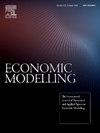去中心化交易所中概率价格操纵的两阶段博弈模型
IF 4.7
2区 经济学
Q1 ECONOMICS
引用次数: 0
摘要
本研究调查了去中心化交易所(DEXs)的价格操纵——基于区块链的点对点交易平台,在没有中央中介的情况下运作——操纵者重新安排交易,以从人为的价格变化中获利。先前的研究通常假设他们总是利用最大的价格下滑,但这忽略了交易顺序的不确定性如何影响总体利润。我们开发了一个两阶段的博弈论模型,该模型包含了不可预测的状态转换和战略费用竞争。分析4810笔掉期交易,我们发现操纵者经常选择较小的交易量,而不是最大化滑点,这表明交易成本和利润不确定性之间的权衡。解释投资者风险寻求倾向的行为延伸进一步支持了这些发现。总的来说,这项工作为去中心化市场中操纵交易的文献做出了贡献,并为旨在提高市场公平的政策制定者和平台设计者提供了可行的见解。本文章由计算机程序翻译,如有差异,请以英文原文为准。
A two-stage game model of probabilistic price manipulation in decentralized exchanges
This study investigates price manipulation in decentralized exchanges (DEXs) — blockchain-based, peer-to-peer trading platforms operating without central intermediaries — where manipulators reorder transactions to profit from artificial price changes. Prior research typically assumes that they always exploit the maximum price slippage, but this overlooks how uncertainty in transaction ordering affects overall profits. We develop a two-stage, game-theoretic model that incorporates unpredictable state transitions and strategic fee competition. Analyzing 4,810 swap transactions, we find that manipulators frequently choose smaller trading volumes rather than maximizing slippage, indicating a trade-off between transaction costs and profit uncertainty. A behavioral extension, which accounts for investors’ risk-seeking tendencies, further supports these findings. Overall, this work contributes to the literature on manipulative trading in decentralized markets and offers actionable insights for policymakers and platform designers aiming to enhance market fairness.
求助全文
通过发布文献求助,成功后即可免费获取论文全文。
去求助
来源期刊

Economic Modelling
ECONOMICS-
CiteScore
8.00
自引率
10.60%
发文量
295
期刊介绍:
Economic Modelling fills a major gap in the economics literature, providing a single source of both theoretical and applied papers on economic modelling. The journal prime objective is to provide an international review of the state-of-the-art in economic modelling. Economic Modelling publishes the complete versions of many large-scale models of industrially advanced economies which have been developed for policy analysis. Examples are the Bank of England Model and the US Federal Reserve Board Model which had hitherto been unpublished. As individual models are revised and updated, the journal publishes subsequent papers dealing with these revisions, so keeping its readers as up to date as possible.
 求助内容:
求助内容: 应助结果提醒方式:
应助结果提醒方式:


